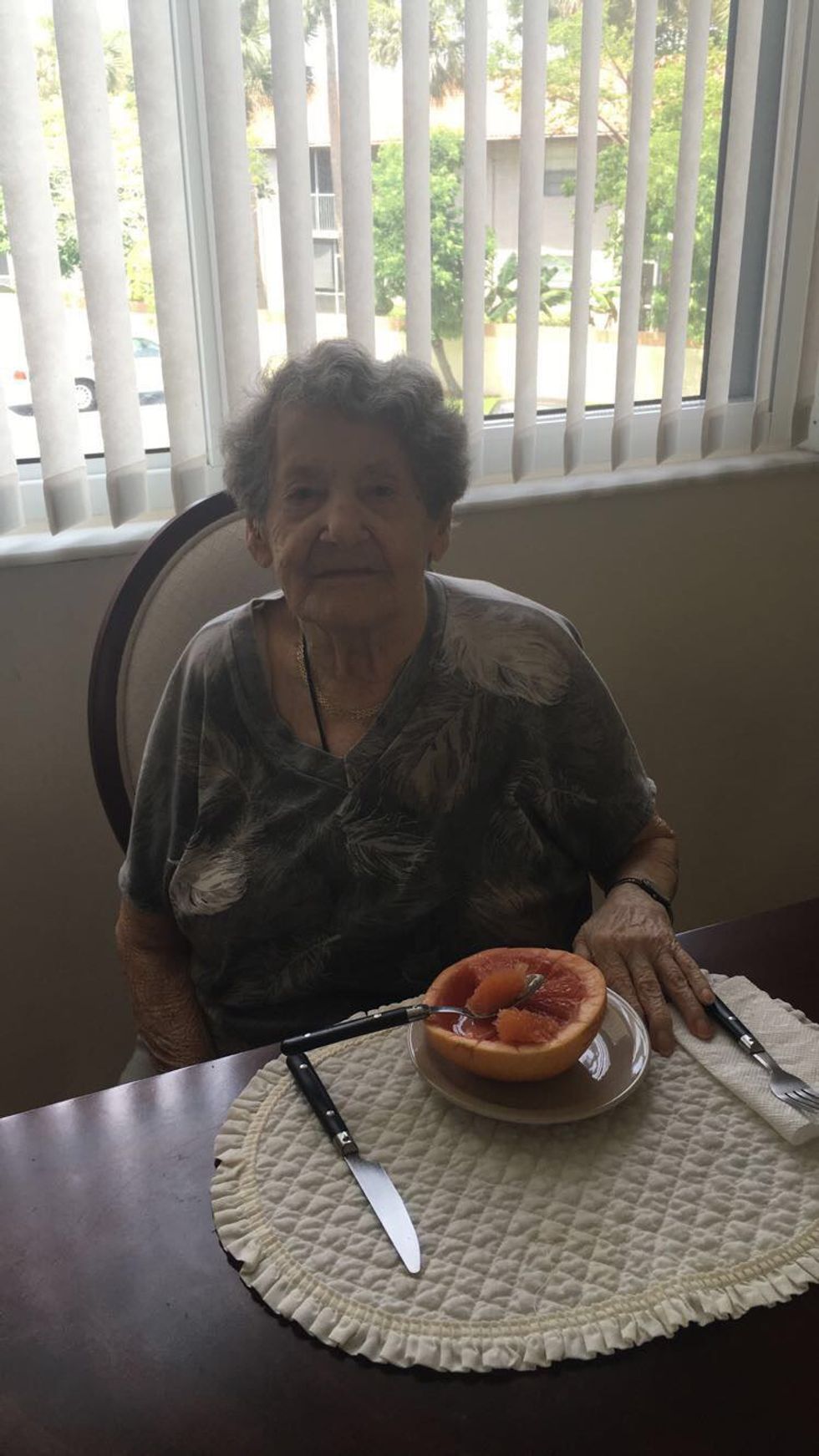Born on May 25, 1927, Sara Auerbach grew up in Czechoslovakia (now Slovakia). As a child, she was very poor. She grew up with a widowed mother and her five brothers and sisters. One thing Sara loved growing up was school. However, in that time they didn’t have clothing stores—your dresses were made specifically for you. She recalls one instance when she was at school and another girl came up to her and said, “I had that dress.”
When Sara was 12 she started living with another woman for work. A year later, after Passover holiday was over, Nazi’s came and put the woman and Sara in a ghetto for Jews. From the ghetto, they were transported to a concentration camp by a train. While getting off the train, you were to leave all of your items onboard—you could take nothing but the clothes on your back with you. Prior to entering the concentration camp, Sara, 13, was holding the woman’s child in her hands. A German soldier saw Sara, the infant and the woman and asked for the mother to come forward with the child. Sara never saw either of them again.
In Auschwitz, Sara was tattooed with a number on her arm. Sara was no longer her name—her new name was the number. She distinctly remembers the conditions in Auschwitz, her room was a large room with beds on top of each other. There were 4 crematoriums, each crematorium was a cornered room with windows. The windows did not open, however the back of the building had a slight hole which is where gas cans would be thrown into the room. She didn’t know German at the time, but she learned quickly because you would be beaten if you didn’t speak it. Their clothes were essentially rags. Every morning she would wake up, get “coffee,” which was really just hot water, and then work. Each day the camp would serve one meal. Since there were no spoons in the beginning, a group of people would have one bowl where they would take a sip of soup. As a worker, Sara would search the hems of the clothes left behind for hidden money. She would also have to clean streets after bombings.
One morning, the soldiers said that everyone who needed new shoes was to stay from work. Sara decided not to go to work for the first time in camp because she was in desperate need of new shoes. She says that staying for shoes was the worst decision—that day all the people who went to work were saved by the Swedish and sent to Sweden. While she stayed, the Germans came and made her get into a truck. Confused, she told the German soldier that she had only stayed behind for shoes. The soldier responded with saying, “It's because you’re petite.” She was put into the back of the truck, which was full of dead people, and was taken to the crematorium. When the truck reached the crematorium, it was full and she was put to work. The next morning, the war was over.
Sara hitchhiked to Berlin in a Russian truck filled with potatoes. A Russian, Jewish soldier helped her leave the country, however she was caught by the British as she was illegally traveling to Israel. After realizing that she was a survivor, she was allowed into Israel after being quarantined and checked for health. Sara did not go home, she said, “I did not want to go back home, I didn’t know who was alive.” She did write letters afterwards asking if anyone knew who was alive, and letting them know where she was located.
Sara’s mother, brother and grandmother were killed in a gas chamber, her brother did not want to leave his mother or grandmother. Another one of her brothers became a soldier for the Russian army. Sara’s sister never went into a camp, she stayed with a Christian family. In Israel, Sara met her husband and had two children, a son and daughter. She then moved to the United States where she had another son.
She told me she often wonders why she survived. She has outlived her husband and daughter, both of whom died on the same day hours after each other five years ago, as well as her sister. She credits her survival to being poor as a child. She was used to going to bed hungry, the rich girls were not used to hunger and died fast in camps. Sara spent a year and a half in Auschwitz. She has since visited her home in Slovakia, however she says no Jewish people live there anymore, not one family went back. A quote that Sara told me is, “A man makes plans, but God makes decisions.” All you can do is go with the flow of life. Life is what you make of it, and there are no words to describe how lucky I am to have been in Sara’s presence.




 StableDiffusion
StableDiffusion StableDiffusion
StableDiffusion StableDiffusion
StableDiffusion Photo by
Photo by  Photo by
Photo by  Photo by
Photo by 
 Photo by
Photo by  Photo by
Photo by  Photo by
Photo by  Photo by
Photo by  Photo by
Photo by 












